UB RISE Speakers
March 25, 2025
12:20-1:20 p.m. | MAND 104 Hear from UB’s doctoral students about their research activities
Moderator: Shannon Hashemi, DBA
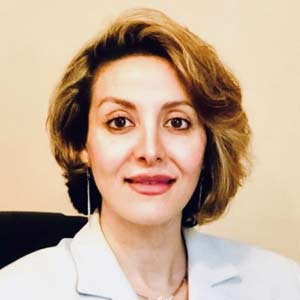
Dr. Shannon Hashemi, CMA, is an Associate Professor of Accounting at UB and co-chair of UB RISE. In 2024, she received the UB Distinguished Faculty Award and was honored with a prize for her research by Mutual Security Credit Union. A leader in curriculum innovation, Dr. Hashemi spearheaded the development of the STEM graduate Accounting Analytics degree. Her research explores key areas such as earnings management, blockchain regulations, taxation, and ethical decision-making in accounting.
Beyond her academic contributions, Dr. Hashemi plays a vital leadership role in the university senate, Faculty Employment Concerns Committee, Phi Kappa Phi honor society, accreditation processes, and curriculum enhancement. She holds a Doctor of Business Administration with a concentration in Accounting from Liberty University, a Master of Business Administration with a concentration in Accounting from the University of New Haven, and an Honors Bachelor of Commerce in Accounting from the University of Ottawa.
Panelists:
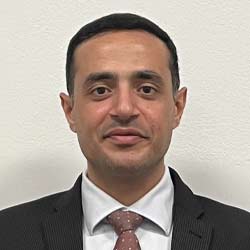
Mohammed Aljamal, ’21
Mohammed Aljamal (’21) is a Laboratory Engineer at UB’s School of Engineering and a PhD candidate in Computer Science & Engineering, specializing in Robotics and AI/Reinforcement Learning. He earned a master’s degree in Artificial Intelligence in 2021 at UB. He plays a pivotal role in academic and professional communities as the President of the UB Robotics Club and a member of AIAA, UPE, and the Honor Society.
His expertise lies in laboratory management, hardware-software integration, IT infrastructure development, and research-driven solutions. Mohammed excels in project leadership, problem-solving, cross-functional team collaboration, and innovative technology implementation. Prior to coming to UB, he has over ten years of experience in consulting, resource allocation, and international collaboration to successfully lead and execute critical projects. His passion for robotics, artificial intelligence, and technological innovation drives him to develop cutting-edge solutions that enhance user experiences and advance the field.
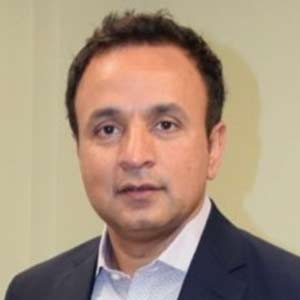
Bishad Ghimire, ’00, ’04
Bishad Ghimire (’00, ’04) is a PhD candidate in Computer Science and Engineering. His research focuses on Cutting-Edge Solutions for Large-scale Combinatorial Optimization Problems, leveraging Hybrid Quantum-Classical Algorithms and Large Language Models (LLMs) with Intelligent Learning Architectures. He holds a BS in Computer Engineering and an MS in Electrical Engineering from UB.
He currently serves as the Chief Information Officer (CIO) at Standard Oil and Companies in Connecticut. He has also held engineering roles at leading technology firms, including as a Hardware Design Engineer at Cisco Systems in California. With a unique blend of executive leadership, real-world experience, and academic depth, Bishad is passionate about driving engineering innovations that enhance efficiency and scalability in AI-powered digital ecosystems.
He remains actively engaged at UB, especially with the School of Engineering, and is one of the longest-serving members of the Industry Advisory Board (IAB).
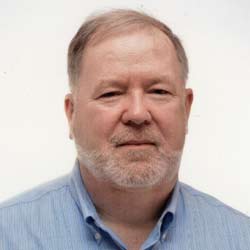
Eugene Gerety
Eugene Gerety has a strong connection with UB through family ties and his own personal academic journey which began in the ’70s. He earned a BSEE and MSEE degree and is currently a PhD candidate in Computer Science and Engineering. UB provides working professionals, like Eugene, the flexibility to work and learn. He will share his perspectives as an adjunct instructor at UB as well as the valuable insights he has gained as a non-traditional student with almost 50 years of advanced engineering experience.
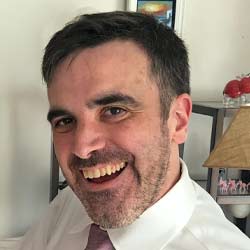
Andrew Iorio
Andrew Iorio is currently in his second semester of a PhD program at UB, where he is studying Computer Science with a focus on Artificial Intelligence and Robotics. Andrew spent 17 years in the private sector, progressing from a junior software developer to Chief Technology Officer (CTO). He holds two prior degrees: a bachelor’s degree in computer science from Western Connecticut State University and a master’s in software engineering from Fairfield University.
March 26, 2025
12:20-1:20 p.m. | MAND 107 Join a panel of student writers for an interactive discussion about the power of self-expression
Moderator: Randy Laist, PhD
Panelists:
Nyla Blackmon, ’26, Mechanical Engineering, Bridgeport, CT
Chamique Brown, ’28, Electrical Engineering, Bridgeport, CT
Marisa Crawford, ’26, Music Education, Bronx, NY
Abigail Giron Marroquin, ’25, English, Stamford, CT
Sofia Martin, ’25, Psychology, Los Angeles, CA
Emily Ortiz, ’26, English and Professional Writing and Education, Bronx, NY
Kenia Quintero, ’26, General Studies and Humanities, Bridgeport, CT
Steph-Ann Wynter, ’26, Criminal Justice and Nursing, Bridgeport, CT
March 27, 2025
12:20-1:20 p.m. | MAND 107 Hear from UB’s master’s students about their work in clinical counseling.
Moderator: Fredrick Dombrowski, PhD
Panelists:
Rachel Vogt, MS (’25)
Lina Orozco, MS (’25)
Yulan Menzie-Hackney, MS (’23)
April 4, 2025
12:50-1:40 p.m.
Moderator: Sherri Dente, Esq.
Judging panel:
Dan Tenney, PhD (’20)
Gad Selig, DBA
Shannon Hashemi, DBA
Bill Moran, ’74
1:45-2:30 p.m.
Moderator: Meredith Gaffney, MPH
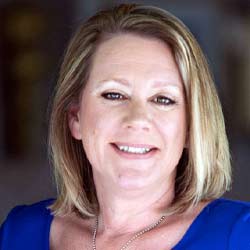
Meredith Gaffney has over 30 years of global health experience. She first earned her BA from Ohio State University and her master's in public health (MPH) from Tulane University. Later, she pursued postgraduate studies at the Universidade Nova de Lisboa and Oxford University. She has worked at all levels of Global Health from the grassroots up to international policy with the United Nations and the United States Government. She has volunteered for various organizations in her spare time, including the United States Peace Corps, her local Land Trust, the Board of Education, and the Girls Scouts of America.
Panelists

Alexis Pudimat, MPH ’24
Abstract: Diabetes and knowing one's A1C level is essential to keeping one’s health on track. A1C levels are directly impacted by a person's diet and lifestyle choices. When a person has diabetes they must balance their insulin levels and eat foods to help keep these levels at bay. Currently, those who receive meals from TEAM`s Meals on Wheels or through congregate meals offered at Griffin Hospital rely on these meals to help balance their A1C levels.
While these meals are relied on, the impact that the meals have on their A1C levels is not known. Throughout the research, the goal is to understand how home delivered meals and the meals at each site affect those receiving the meals. If these meals do not help to balance their A1C levels, then there needs to be a change in the nutritional value of the meals being served. The meals that each person receives are essential to their health, and without these meals, they would not be able to attempt to balance their A1C levels. Those who receive Meals on Wheels need these meals as they are the primary source of nutrition for them, and they need them to sustain their lives whereas those who get meals from Griffin Hospital`s Congregate Meal Site also rely on these meals for nutrition but possibly as a supplement to other nutritional sources. After analyzing the meals that those from each population receive, it was found that those who received meals from TEAM`s Meals on Wheels had their A1C levels decrease over a two-week period, while those who received meals from Griffin Hospital`s Congregate Meal Site had their A1C levels increase over the two-week period. This shows that those who had their meals pre-designed for them saw an improvement in their A1C levels, whereas those who had more freedom in their meal preferences saw an increase in their A1C levels.
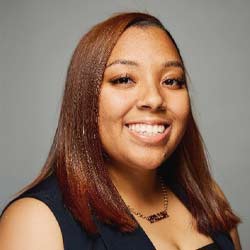
Hillary Deane, MPH ’25
Abstract: Pregnant women are particularly vulnerable to a range of oral health conditions that can negatively impact both maternal health and fetal development. Despite the importance of maintaining good oral hygiene during pregnancy, many expectant mothers receive less dental care due to persistent myths and misconceptions regarding the safety of dental treatments during pregnancy.
Poor maternal oral health has been linked to adverse pregnancy and birth outcomes, including preterm birth, low birth weight, and an increased risk of early childhood caries in offspring. This analysis will further investigate the impact of socioeconomic status on access to dental care during pregnancy, emphasizing the relationship between lower socioeconomic status and diminished health care access. Given the physiological changes that occur during pregnancy, dental management requires special considerations, including the careful selection of medications and appropriate scheduling of dental procedures. This review will explore common dental conditions affecting pregnant women, their treatment implications, and best practices for safe and effective oral healthcare during pregnancy.
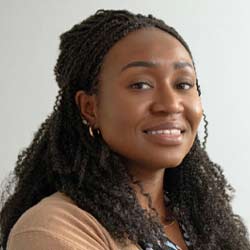
Shari McIntosh, MPH ’25
Abstract: Childhood trauma, including adverse childhood experiences (ACEs) like abuse, neglect, and household dysfunction, has long been linked to poor long-term health outcomes (Webster, 2022) (Felitti et al., 1998). According to Hughes et al. (2017), adverse childhood experiences (ACEs) can increase a person’s likelihood to engage in risky behaviors, acquire chronic diseases, and suffer from mental health disorders in adulthood (Sanderson et al., 2021).
The dose-response relationship seen in countless studies is a glaring example that a higher number of ACEs can directly correlate with a greater likelihood of adverse health outcomes (Anda et al., 2006). Even more telling is the direct link of ACE categories like emotional abuse, physical abuse, domestic violence, and community violence to depression, PTSD, and chronic illness (Sanderson et al., 2021) (Teicher & Samson, 2016). These mechanisms through which childhood trauma influences long-term health should make the need for more ACE consideration abundantly clear. However, as evidence that childhood trauma contributes to chronic diseases, mental health disorders, and health inequities accumulates, there seems to be no real goalpost for policy change.

Amanda Lounibos, MPH ’24
Abstract: There are known geographic and socioeconomic disparities in both visual impairment (VI) and access to vision care. Although comprehensive eye exams can improve vision health outcomes, less than half of adults receive exams as recommended. Rural regions lack sufficient data to assess local barriers to vision care. Free Mobile vision clinics address multiple access barriers by reducing cost and transportation barriers and reducing inequities.
The proposed non-randomized, pre-post study aims to describe factors related to visual impairment (VI), socioeconomic disparities, and VI due to uncorrected refractive error. This will be done in partnership with a mobile vision clinic providing eye exams and corrective glasses. The target sample is individuals aged 50 and over living in underserved, rural areas of Michigan's Upper Peninsula (N=150). Multiple linear regression analysis will explore the independent effects of individual and social determinants of visual impairment within this rural population on three outcome measures: presenting (or baseline) visual impairment, time since the last eye exam, and change in visual impairment after refraction correction. Effect modification by county will be assessed. Post-intervention focus groups will evaluate integration, recruitment, and referral process. Mobile vision clinics may address socioeconomic and geographic disparities. Understanding individual and social determinants of vision impairment and whether these are different by county is necessary to assess current service and infrastructure needs and plan for anticipated growth in vision services needs as the population ages. Future evaluation studies are recommended to assess mobile service cost-effectiveness and ability to integrate with the current health systems and explore its potential to promote growth in the rural vision health workforce. Keywords: vision health, disparities, vision impairment, mobile vision clinic.
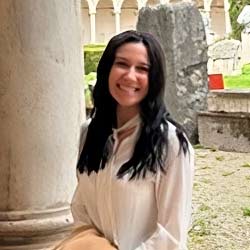
Alisha Drabek, MPH ’24
Abstract: Per- and polyfluoroalkyl substances (PFAS) are ubiquitous, human-created-chemicals that present a severe public health and environmental threat. Firefighters face elevated risks of exposure to PFAS due to routine use of aqueous film-forming foam (AFFF) and PFAS containing personal protective equipment, including turnout gear. Exposure to PFAS contaminated drinking water, particularly at facilities reliant on both private drinking water wells and septic systems, remains a less investigated area, but could present substantial additional exposure risk for this population.
The proposed study expands upon previous research to evaluate the potential for PFAS contamination in the drinking water of Connecticut firehouses. Firehouses located in Tolland County will be used as a case study to evaluate potential sources of variation in exposure risk associated with consumption of PFAS contaminated drinking water at facilities due to differences in facility usage (i.e., volunteer vs. paid staff), drinking water sources (i.e., public water systems vs. private drinking water wells) and waste water management, practices (i.e., on-site septic system treatment vs. sewered facilities). The survey of firehouse member knowledge of PFAS and the review of available data–public health, environmental, and fire department records, will be conducted to explore data and knowledge gaps, which in turn can be used to inform the development of population-specific health-based education approaches. This research will expand upon the State’s knowledge and understanding of PFAS-related health concerns associated with occupational exposure due to firefighting and will lead to the development of population-specific educational; materials that will equip fire departments with the knowledge necessary to make informed decisions regarding firehouse-specific PFAS exposure mitigation measures.
2:35-3:10 p.m. Alumni Panel: Overcoming Challenges & Building Foundations in the U.S. Job Market
Abstract: Navigating the U.S. job market can present obstacles for all those seeking to enter. Domestic and international students share similar paths for addressing challenges. However, there are distinct challenges facing international students, including cultural adjustments, communication barriers, and navigating competitive employment landscapes.
We will provide foundational strategies to address these hurdles and build confidence as students transition from academia to professional careers. Additionally, we will discuss how to leverage international experiences as unique strengths in the job search.
We will delve into the multifaceted challenges students often face, including adapting to unfamiliar work cultures, mastering the art of meeting tight deadlines, and effectively balancing academic demands with professional responsibilities. Participants will hear actionable strategies for navigating complex situations, such as maintaining composure under pressure, approaching obstacles with a problem-solving mindset, and transforming setbacks into valuable opportunities for growth. Practical advice for fostering cross-cultural collaboration will be included to empower both international and domestic students.

Lorraine Taylor
Lorraine Taylor graduated from UB with a Bachelor of Science in Fashion Merchandising. In 1981, she received a MBA with a concentration in Marketing from the Kogod School of Business at the American University in Washington, DC. Lorraine channeled her business and marketing experience in product development and revenue generation for the Washington Metropolitan Area Transit Authority, which covers Washington, D.C., MD and northern VA. She retired after 32 years of service in fare payment development, project management, customer service and creative vision for product implementation. She remains active on the UB Alumni Association (UBAA) Board serving as chair of the Student Success Committee which hosts alumni gatherings and scholarship opportunities for students. She also serves as co-chair for the UB Black Alumni Association Dr. Martin Luther King, Jr. Endowed Scholarship with a focus on fundraising and she is an active member on the UBAA.
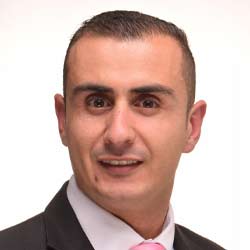
Saddam Alkhamaiesh
Saddam Alkhamaiesh earned a PhD in Technology Management from UB and is currently a professor at Eastern Connecticut State University and adjunct professor at UB. With expertise in IT, lean manufacturing, and change management, he has developed curricula that enhance student competency. His research focuses on EV technician training and strategic technology implementation, with publications and presentations at significant conferences. Saddam holds Six Sigma, Project Management, and Digital Marketing certifications and remains active in mentoring and advancing technology education.

Dolly Balaji
Dolly Balaji graduated with a master’s in criminal justice & human security. She proudly hails from Chennai, India. Since 2024, she serves on the UBAA Board. She is the founder of Lexentrix Solutions, India, and a leader at Fairfield County Law Group LLC. At the Connecticut Institute for Refugees and Immigrants, she empowers immigrant communities by providing critical legal and social services. She is currently pursuing a Ph.D. in Organizational Leadership at the University of the Cumberlands, She is also an author of The Dolly Effect: Chronicles of Resilience & Empowerment. The book shares her passion for mentoring and making a lasting impact through resilience, determination, and a commitment to inspire others.
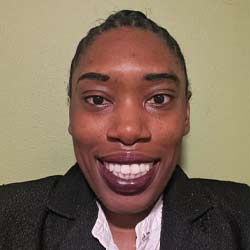
Brittany Harris
Brittany Harris was born and raised in Bronx, NY and comes from a family full of healthcare professionals. She is a Certified Health Education Specialist through the National Commission for Health Education Credentialing, Inc. She is a UB graduate with a BS in Health Sciences with a concentration in Community Health Education and a minor in Psychology in 2016. Later, she received her master’s in public health with a concentration in Community Health in 2018 at Monroe College in NY. She has worked as a Health and Nutrition Educator at Harlem Children's Zone in which she provided health education for parents and nutrition education for students in K-5th grade. Currently, she works as a project coordinator at the Archdiocese of New York Drug Abuse Prevention Program in which she oversees a coalition called Forward South Bronx Coalition in the Hunts Point/Longwood area.
